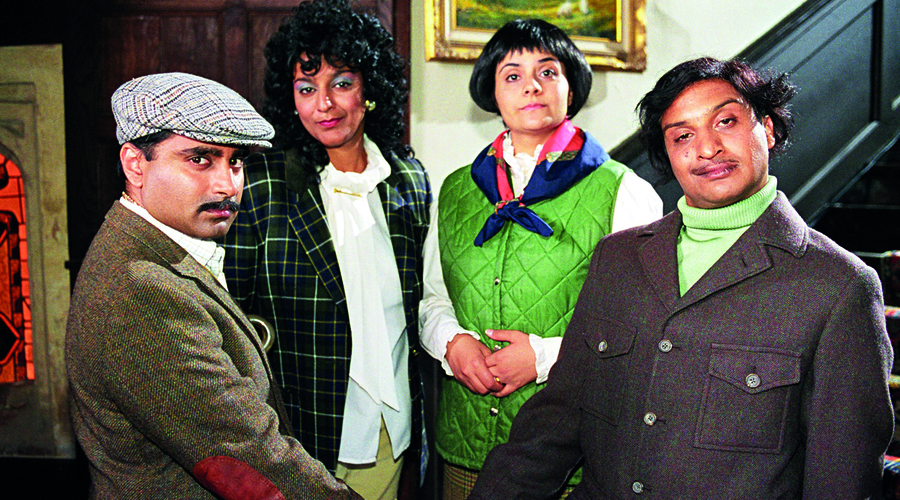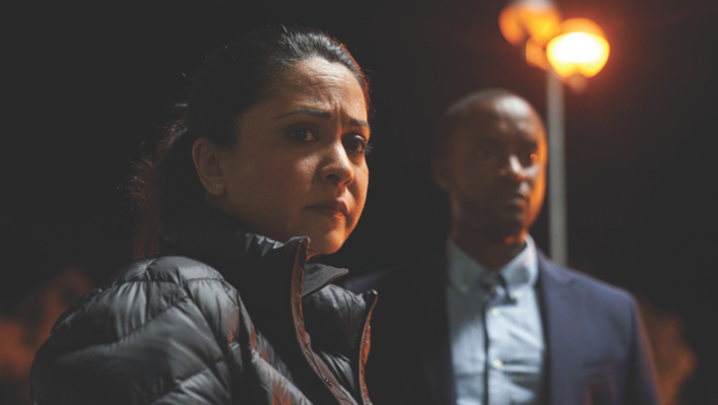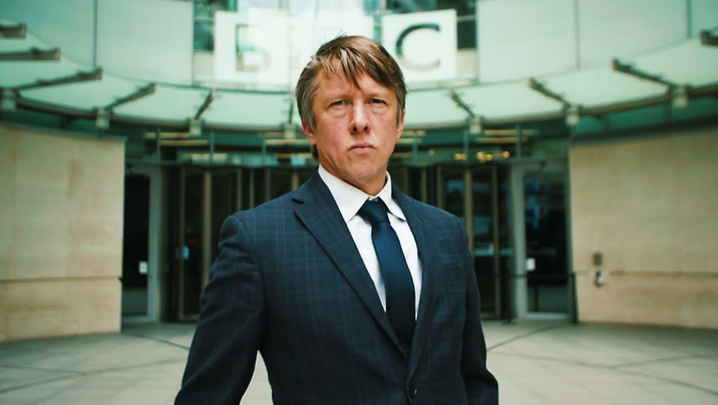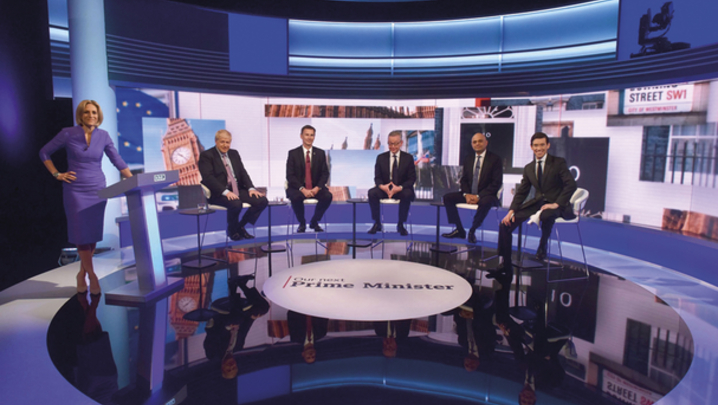RTS Midlands celebrates the groundbreaking Goodness Gracious Me, which subverted racial stereotypes but is still alarmingly relevant
It is 25 years since children first ran around playgrounds shouting the catchphrase: “Kiss my chuddies!” And a quarter of a century since we laughed at the competitive mothers determined to outdo each other – one even demanding: “Yes, but how big is his danda?” – and winced at the rudeness of the ignorant diners “going for an English.”
To celebrate the silver anniversary of the trailblazing BBC sketch show Goodness Gracious Me, three of the creatives reunited at an event sponsored by the RTS Midlands centre in Birmingham.
Remarkably, the show still feels fresh and resonates today, which is a double-edged sword, according to one of its stars, actor Nina Wadia. She said: “I’m so incredibly excited that people still find it funny and still love the characters, but I’m so sad that it’s still relevant. It shouldn’t be, we should have moved on more. Though I do feel there has been some progress.”
The creatives behind Goodness Gracious Me have undoubtedly aided that development. Writer Sanjeev Kohli pointed out: “We didn’t have role models, but hopefully we are the role models now. I hope we punctured a lot of things. We said things that needed to be said.”
Kohli, Wadia and actor Kulvinder Ghir reminisced and offered a fascinating behind-the-scenes insight to kick off the DESIblitz Literature Festival. It was fitting for RTS Midlands to be involved as it held a launch event in the city for the TV show 25 years ago at the BBC’s Pebble Mill Studios.
Goodness Gracious Me began as a Radio 4 series in 1996 before moving to BBC Two 18 months later, and ran until 2001. The ensemble cast were Wadia, Ghir, Meera Syal and Sanjeev Bhaskar.
It was groundbreaking for the way it explored British Asian culture, poking fun at stereotypes and turning the tables on British views. Its most famous sketch was “Going for an English”, which parodied drunk British people eating at an Indian restaurant, being rude to the waiter, demanding the spiciest thing on the menu and ordering far too many poppadoms.
Recurring characters included Mr “Everything Comes from India” (who claimed that even Jesus was Indian as he worked for his father and fed 5,000 people with very little) and the Kapoors, who called themselves Coopers and claimed to be entirely English. The Bhangra Muffins were two teenage boys attempting to be cool, calling girls “ras malai” and shouting, “Kiss my chuddies!” (chuddies is slang for underwear). Chunky Lafunga was an oily Bollywood superstar who called everyone “sweetie darling”, while Mrs “I Can Make It at Home for Nothing!” ranted about everything being too wasteful.
Goodness Gracious Me grew out of a previous BBC sketch show, The Real McCoy, which featured black comedians, including Felix Dexter and Curtis Walker, plus Syal and Ghir. Its script editor was Anil Gupta, who went on to work on The Office and The Kumars at No 42. It was Gupta who approached broadcasters with the idea of an Asian sketch show.
Ghir explained: “Channel 4 thought it was a little ahead of its time. The BBC wasn’t sure and said, ‘Maybe we’ll put you into radio’, which did us a great favour. We could try out the sketches to make sure they worked verbally. When we won a Sony Award, the BBC gave us a 30-minute TV pilot, then six episodes made on a shoestring.”
The cast quickly gelled. Wadia remembered: “We were so like-minded and had all had similar experiences. We had all been to an Indian restaurant on a Friday night with white friends who asked the waiter: ‘Can we call you Sid?’
“That sketch was holding up a mirror to people and saying: ‘This is our experience as brown people.’ It made the audience go: ‘Oh, that’s what we’re doing’, but they still laughed.”
The creatives talked about the way they aimed to educate through comedy, highlighting issues while making viewers laugh.
Ghir added: “We turned the tables many times. We said: ‘We’re not stupid, we know what your behaviour is like, but we’re no better. Let’s put down our weapons and look at our humanity.’”
Kohli talked about how the show “tapped into the laughter of recognition, which nobody had verbalised before”. As an example, he recalled “a sketch about Asian MasterChef, set in India. Kulvinder described his first course as an elaborate dish from the court of an emperor, then the main was an entire goat marinated for six weeks. What about pudding? ‘Fruit cocktail with Tip Top [a tinned creamy topping].’ That’s what happened if we went to friends’ houses for dinner. You’d get the best food, beautiful biryanis and fluffy naans, then fruit cocktail with Tip Top.
“I sent the sketch to Anil and he said he didn’t get it. But when they recorded it, there was a rollercoaster laugh of recognition, with people saying: ‘I thought that was just in my house.’”
While some of the characters may appear exaggerated, Kohli said: “You’ll usually find they are based on something that actually happened.”
In fact, they were occasionally ahead of their time. Kohli revealed: “I invented a character quite early on who we thought was too far-fetched. It was based on someone I knew, an Asian who hated Asians and had a sticker above his bed saying: ‘This is a Paki-free zone.’ Extraordinary and clearly not true whenever he got into bed.
“I found this level of denial hilarious and I wanted to do something with that, inventing an Asian woman in the Cabinet, but then I thought: ‘They’re not going to buy that.’ Then Suella Braverman arrived!”
Wadia remembered: “We were filming the Coopers in Ealing Broadway shopping centre when a real-life Dennis Cooper appeared. He was very angry and said: ‘Stop showing white people that some of us want to be white.’ He took offence that he had recognised himself, but that’s the sort of person we want to offend.
“The most complaints we got was when the Coopers became Christians, and when he took the communion wafer he asked for a pickle. People said how insulting it was. It was a fine line, but we weren’t making fun of the body of Christ, we were making fun of the character and what an idiot he was. There was actually very little criticism from our own community.”
Kohli said: “We weren’t trying to offend. We always thought about the intended victim, and we were careful not to punch down. Most people who complained were just too thick to get the joke.”
Ghir pointed out: “It was such a British show, sarcastic and tongue-in-cheek. We were influenced by things such as Monty Python’s Life of Brian. We thought: ‘It’s time for us to speak out and you’ve given us the tools to do it. If you don’t get it, that’s your problem.’
“Instead of turning the other cheek and not causing trouble, a generation of us was saying: “No, it’s time we stood up for ourselves.’ Not using fist fights, but wit.”
‘Goodness Gracious Me – from writing to screen’ was sponsored by RTS Midlands and held at Symphony Hall in Birmingham on 20 October. It was produced by DESIBlitz.







